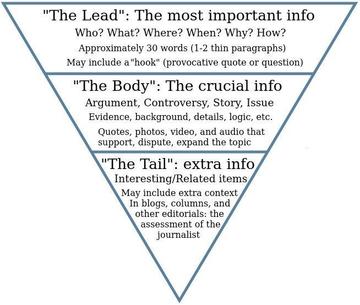- Who?
- What?
- When?
- Where?
- Why?
- How?
- So what?!
Where a blog post differs from other writing you may have experience of is that it tells a story, and is about you and your personal experience – so write in your own voice. Think about how you might use a narrative to get your point across, or engage in aspects of popular culture to illustrate your key message.
Consider being controversial. However, be aware that blog posts on University websites will be branded University of Oxford, rather than being your own personal blog – so you will need to consider carefully how far you take your controversial views. Feel free to discuss your ideas with others first.



